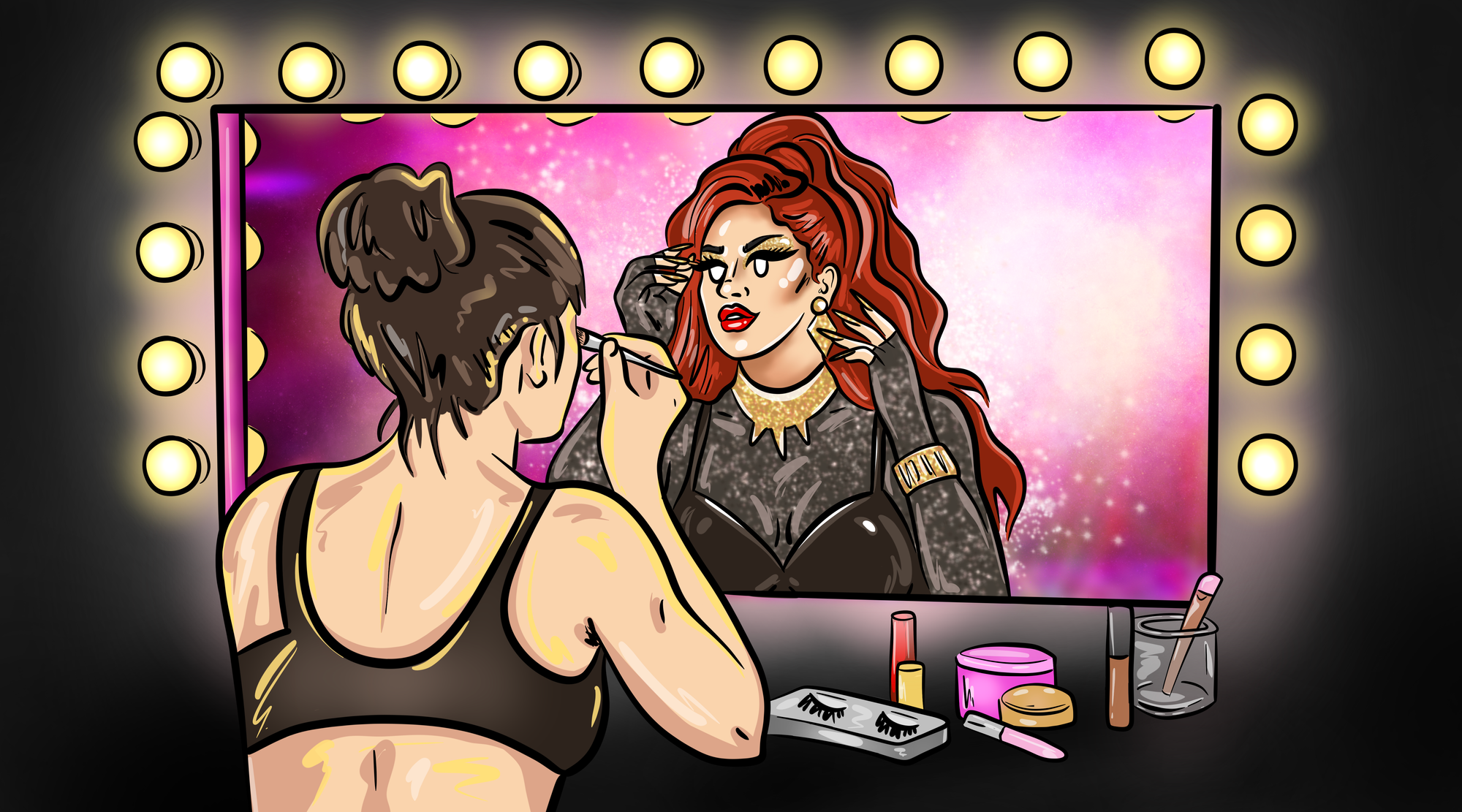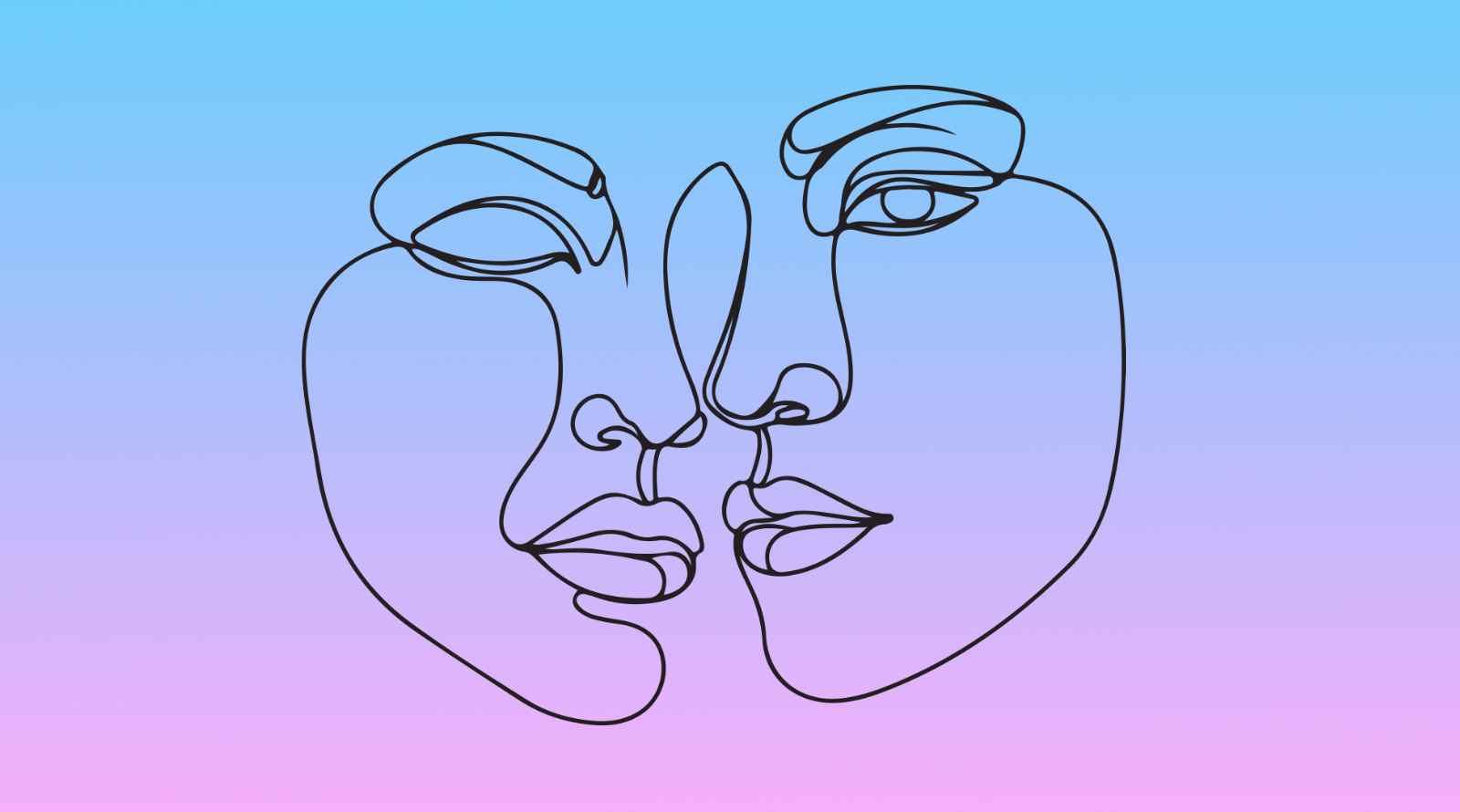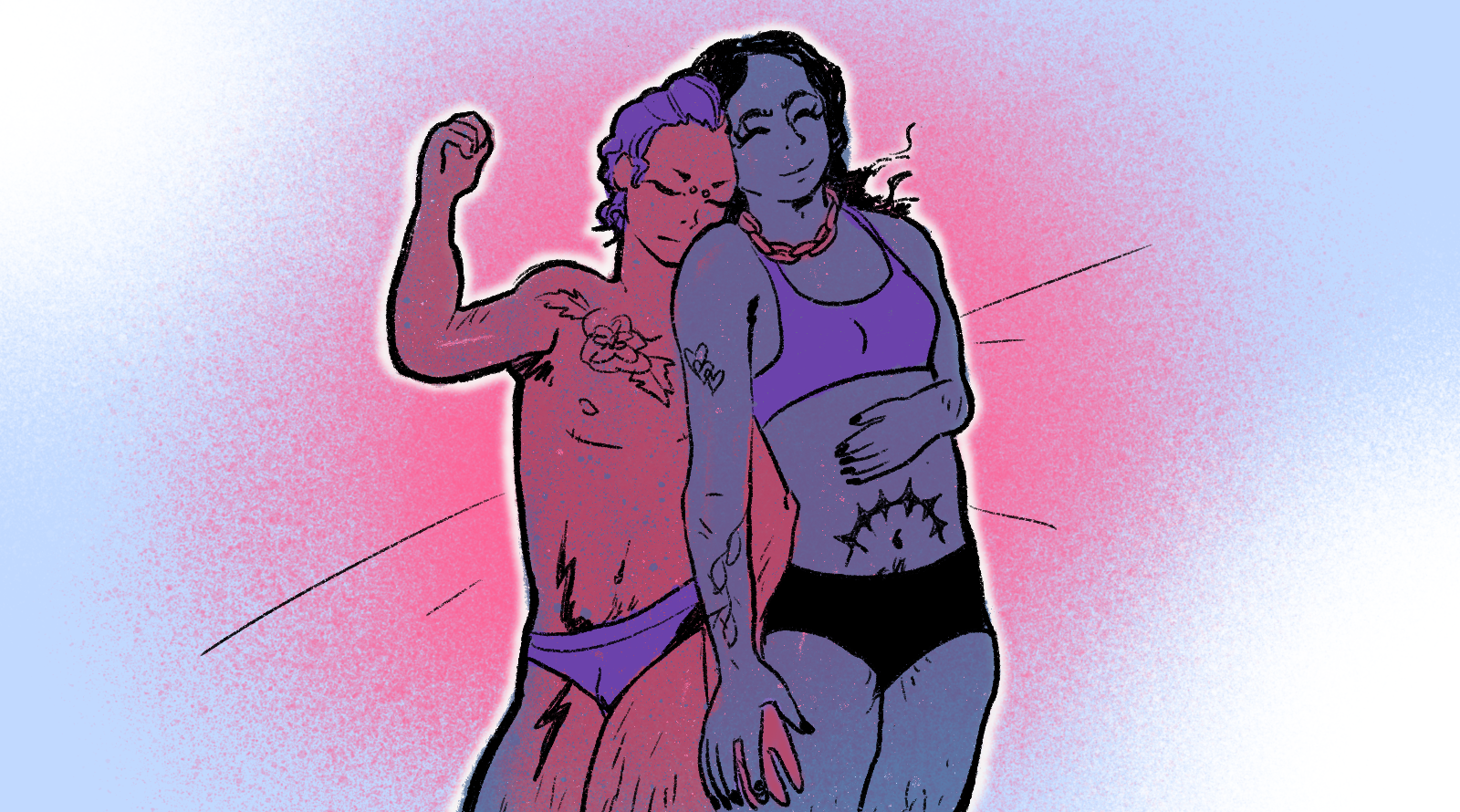As the world becomes increasingly attuned to gender diversity, reconciling my identity with societal expectations remains a complex challenge. The environments we as queer individuals navigate have become more progressive, but they often impose specific conditions or limits on how we are accepted. For instance, while non-binary people are becoming more accepted in society, they are expected to fit the thin, white, androgynous stereotype we often see represented in the media. Anyone outside of this framework is generally not socially palatable and, as a consequence, is more likely to have their non-binary identity called into question.
Just as androgyny is used as a way to validate non-binary people, the empowerment narrative is used to validate certain forms of sex work. In particular, the acceptance of stripping as a form of ‘empowerment’ contrasts the rejection of full-service sex work, which is frequently stigmatised as inherently degrading or shameful. To some, the idea of empowerment provides a socially acceptable rationale for engaging in such work, and can often be a prerequisite for broader acceptance. Remove that justification and people's perceptions tend to shift dramatically. But contrary to popular belief, sex work does not need to be framed as empowering to be valid or respectable. The insistence that sex work must serve a purpose beyond simply being a job itself amplifies how conditional acceptance can be.
Similarly, the insistence that non-binary people must fit some sort of androgynous default puts us into a different kind of box — which is ironic, given our goal is to stand outside the binary. As I’ve already touched on, androgyny is not an intrinsic quality of non-binary identities but, rather, a product of what society has been conditioned to, and conditions us to, accept and understand. Like many others growing up, the queer representation available to me was sparse. As a result, I was driven to repeated, uncomfortable attempts at femininity rather than genuine self-expression. Gradually, I came to understand that this discomfort stemmed from this attempted adherence to patriarchal femininity — which is exactly what it sounds like: a framework that encompasses the regulatory power and gender policing used to maintain normative cishetero femininity.
As the world becomes increasingly attuned to gender diversity, reconciling my identity with societal expectations remains a complex challenge.
Even armed with this insight, I still faced the challenge of existing within a cultural framework that often lacks representation for non-binary identities that do not fit into that specific mould. These pervasive Eurocentric beauty standards offered little guidance for someone like me, especially as a second generation immigrant and person of colour.
I experimented with my appearance, cutting my hair and dressing differently. But eventually, I realised that no matter how I presented, I was always going to be perceived as femme. I tried not to let this bother me, but I can’t deny that it did. When I first entered the industry as a stripper, it exasperated me that hyper-femininity was far from my default. This ended up helping to solidify my sense of gender, knowing I did not fit within the binary. Nonetheless, I quickly created a new hyper-femme persona, Salem. Although getting ready for work felt far from empowering and this was the most femme I had ever presented, I didn’t feel as uncomfortable as I thought I would. My primary concern was my income, and at the end of my shift, I’d drive home, take off my femme drag and that was that.
After a while, the complexities of performing Salem’s femininity were overtaken by new concerns. As a mixed-race person in the Western sex work industry I was, more often than not, being placed in the ‘alternative’ box. It meant I was automatically ‘too brown’ for some clients or ‘not western enough’ for others. In either case, I lost. I was either being fetishised for my race or my proximity to whiteness, and there was no in between. This marginalization left little room for deviation from (white, western) patriarchal femininity without risking my financial stability.
Interestingly, over time, I have come to think of femininity as something less restrictive — something fluid and evolving, especially in relation to non-binary identities. This gradual change is best captured by Rhea Hoskin, who defined femme as “a femininity that does not articulate a complementary relation of dominance and subordination between women and men – equally described as a form of feminine resistance marked by non-compliance.”
Interestingly, over time, I have come to think of femininity as something less restrictive — something fluid and evolving...
What I now know, especially after entering full service sex work, is that my work persona is actually so far from my identity — and, surprisingly, brothel Salem really is such a she/her. She may be a she/her I don’t really align with, but we still eyeroll alongside each other at every casually racist comment, every time she’s asked ‘where are you from’, every time a client pushes a boundary. I might be fuming, but she manages to resolve conflict without shattering that veneer of patriarchal femininity – a skill she has developed over the last six years. Like most whores, she truly is more multifaceted than I could ever be – a therapist, a confidence booster and someone to confide in. Someone that knows the sides of men they hide from the rest of the world.
Over time, not looking non-binary enough is something that has bothered me less, and I continue to remind myself of what we already know — gender expression is a socially constructed scam, and therefore doesn’t always align with gender identity. I’ve come to realise that what matters to me most is feeling understood in the way I want to be understood, and knowing that the best thing about being non-binary is that our experiences with gender identity ebb and flow, and are subject to change regardless of our contexts.
As Alok Vaid-Menon says: “The real crisis is not that gender non-conforming people exist, it’s that we have been taught to only believe in two genders in the first place. Gender diversity is an integral part of our existence, it always has been, and it always will be.”
For another perspective on gender performance for sex work, see Neptune Henriksen's Being A Woman For Money.
Are you a sex worker with a story, opinion, news, or tips to share? We'd love to hear from you!
We started the tryst.link sex worker blog to help amplify those who aren't handed the mic and bring attention to the issues ya'll care about the most. Got a tale to tell? 👇☂️✨




